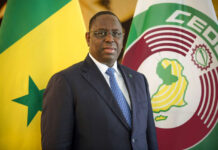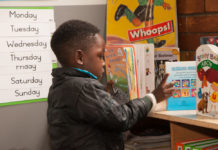Growing up in Jamaica, my sense of identity was shaped by a rich tapestry of African heritage, maroon resistance, and a national culture that, for all its complexities, largely transcended the tribal divisions of our ancestors. Now, residing in Africa, I am confronted daily with the persistent reality of tribalism—a force that, in my view, continues to impede the continent’s progress, unity, and potential. This article explores how tribalism, rooted in history and manipulated by both colonial and postcolonial systems, remains one of the most significant barriers to nation-building, social cohesion, and sustainable development in Africa.
The Jamaican Experience: A Contrast in Identity
Jamaica’s history is, in many ways, a story of overcoming tribalism. Enslaved Africans, torn from diverse ethnic groups across West and Central Africa, were initially divided by language, custom, and allegiance. Yet, over generations, the plantation system, resistance movements, and the spread of Christianity eroded these divisions, forging a new, unified African-Jamaican identity[5]. By the 19th century, cultural tribalism had largely given way to a collective consciousness—one that would later fuel the struggles for emancipation and national independence.
This process did not erase African roots; rather, it transformed them. Jamaican culture, music, and spirituality—Rastafari, Kumina, and Maroon traditions—are living testaments to a creative synthesis of African heritage[12][17][13]. But crucially, the divisive aspects of tribalism were replaced by a broader, more inclusive sense of “Blackness” and Jamaican nationhood[4].
Tribalism in Africa: A Persistent Challenge
Arriving in Africa, I was struck by how deeply tribal identities still shape everyday life. From political appointments to resource allocation, employment, and even marriage, tribal affiliation often trumps merit, national identity, or shared citizenship[3][8][18]. This is not merely a matter of cultural pride or harmless tradition; it is a structural reality with far-reaching consequences.
### **Historical Roots and Colonial Manipulation**
While tribal identities predate colonialism, the colonial project entrenched and weaponized these divisions. European powers drew arbitrary borders, lumping together diverse groups and then exploiting their differences to maintain control[14][16]. Post-independence, many African states inherited weak institutions and a legacy of ethnic favoritism, which has continued to undermine national unity and effective governance[8][16].
**Tribalism’s Impact on Governance and Development**
– **Nepotism and Corruption:** Political leaders often favor their own ethnic group in government appointments, contracts, and resource distribution, sidelining more qualified individuals from other groups[2][8][9].
– **Electoral Conflict:** Elections frequently become ethnic censuses, with voters supporting candidates solely from their tribe, leading to political instability and, at times, violence[7][10][14].
– **Economic Inequality:** Resource allocation along tribal lines perpetuates regional disparities, stifles meritocracy, and limits opportunities for marginalized groups[8][18].
– **Social Fragmentation:** Tribalism erodes social trust and national identity, making it difficult to build cohesive societies or implement policies for the common good[3][6][19].
**Examples Across the Continent**
– **Nigeria:** Ethnic and religious conflicts have fueled instability and hindered economic development, with political power often concentrated among a few dominant groups[3][16].
– **Kenya:** Post-election violence in 2007-08 revealed how quickly tribal loyalties can escalate into national crises, undermining democracy and security[7][14].
– **South Africa:** Despite the end of apartheid, tribalism and ethnophobia continue to divide Black South Africans, impeding unity and social cohesion[6].
—
The Human Cost: Lost Potential and Perpetuated Injustice
The obsession with tribalism is not a benign cultural phenomenon—it is a “bone on the neck” of Africa, foiling progress and nation-building[2]. Qualified individuals are overlooked for jobs or leadership roles if they belong to the “wrong” tribe. Public resources are siphoned off to benefit a select few, while millions languish in poverty. Social services, education, and healthcare are unevenly distributed, deepening inequality and resentment[8][9][18].
Tribalism also perpetuates cycles of violence and displacement. In regions like Darfur, competition over land and water—often along tribal lines—has led to devastating conflicts, loss of life, and years of stalled development[11]. Indigenous groups such as the Batwa in Rwanda or the Pygmies in Central Africa face discrimination, marginalization, and even denial of their very identity[15].
—
Tribalism vs. Racism: Two Sides of the Same Coin
As a Jamaican, I am keenly aware of the parallels between tribalism in Africa and racism in the West. Both are systems of “othering” that justify unequal treatment, maintain power structures, and hinder collective progress[19]. In Jamaica, the struggle has been to overcome the legacy of racism and internalized self-hate; in Africa, the challenge is to transcend the boundaries of tribe and build inclusive, merit-based societies.
—
Lessons from the Diaspora: Toward a New African Identity
The Jamaican experience offers valuable lessons. While we have not eradicated all forms of division—political tribalism and classism persist—the forging of a national identity that transcends tribal origins has enabled greater unity and resilience[5]. Pan-Africanism, Rastafari, and the broader Black consciousness movement have shown that it is possible to honor ancestral roots while building new, inclusive communities[12][13].
The Path Forward: Breaking the Chains of Tribalism
To unlock Africa’s full potential, a fundamental shift is needed:
– **Promote Meritocracy:** Appointments, scholarships, and opportunities must be based on ability and integrity, not tribal affiliation[2][8].
– **Strengthen National Identity:** Education, media, and civic institutions should foster a sense of shared citizenship and collective destiny[3][18].
– **Inclusive Governance:** Electoral systems and political parties must be reformed to encourage cross-tribal coalitions and issue-based politics[10][18].
– **Address Historical Injustices:** Acknowledge and redress the legacies of colonial manipulation and ethnic favoritism[14][16].
– **Celebrate Diversity, Reject Division:** Tribal heritage can enrich national culture, but it must not be a tool for exclusion or oppression[8][19].
Conclusion
As someone of African descent, born in Jamaica and now living in Africa, I have witnessed both the power of unity and the destructive potential of tribalism. The path to Africa’s renaissance lies not in denying tribal identities, but in refusing to let them dictate our destinies. Only by moving beyond the obsession with tribalism can Africa realize the dreams of its ancestors—and build a future worthy of its immense promise.













